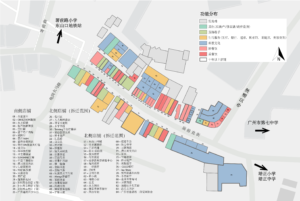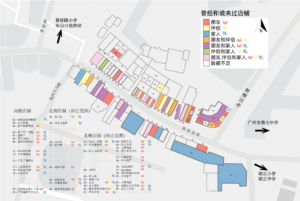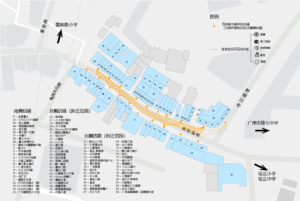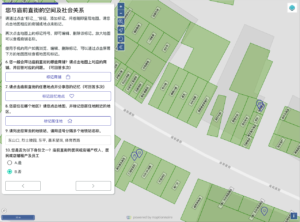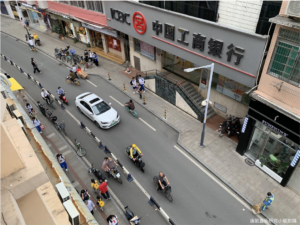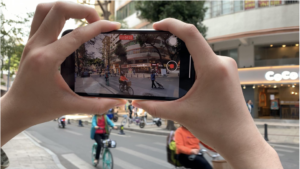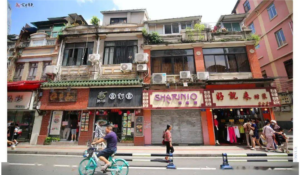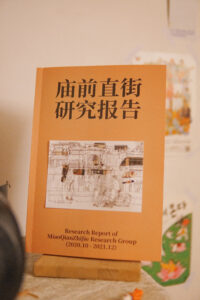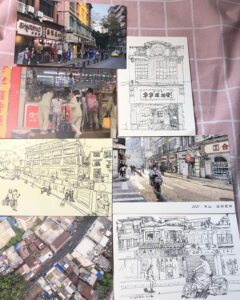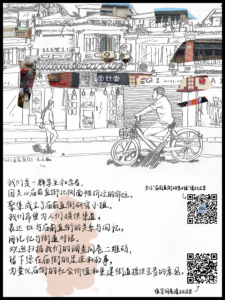In September 2020, Guangzhou city government released an opinion draft to ask for public inputs for the plan to demolish Miaoqianzhi ‘jie’ and Shuqian Road to build a large interchange metro station – Shuqian Road Station in the historic old town area in Guangzhou, China. The draft raised huge public debate and the city conceded on leaving the Shuqian Road intact, but still decided to demolish Miaoqianzhi ‘jie’. While Shuqian Road is more difficult to demolish due to the existence of a large public library and Chenshuren memorial hall, Miaoqianzhi ‘jie’ is a mixed-used historic street with buildings and small businesses dated back to 1910s, mainly serving the local neighborhoods. Miaoqianzhi ‘jie’ also borders the Xinhepu Cultural District (a historically preserved area) and connects three local schools and a regional Children’s Palace (a public institution where kids take interest courses). Many stores on the streets have been open for decades and the streetscape is unique to the culture of the area. Therefore, Miaoqianzhi ‘jie’ has been a place of connections, memories, and cultural symbols.
Our project takes an action research approach and asks three research questions:
- How can we quantify the social impacts of the demolishment, from the perspectives of social networks and place attachment?
- How can we re-assess the “benefits” of transit connectivity from the perspectives of the locals?
- How might this research help promote a more civic-centered, well-rounded outcome for the street, even if we cannot stop the demolishment?
We conceptualize the social impacts as the inability to transfer daily life activities, maintain current social networks, and relive memories. We designed a spatially embedded survey through the Maptionnaire platform, where citizens can leave marks on the maps that highlight their visits to various places on the street and comment on the trip purpose, trip companion, and the replacement for the visit if the place is demolished. We also allowed citizens to share concrete memories, how the demolishment will impact their personal lives, and suggestions of alternatives in the survey.
This research is embedded in a greater civic research movement that happened locally, organized by Miaoqianzhi ‘jie’ Research Group. The research group is founded by Friendly Cities Lab PhD Xiaofan Liang and has a Chinese WeChat account that published work conducted by research volunteers. So far, the research group has produced 1) a full set of shapefiles for every store on the street, 2) an archive of the store type, name, address, year, and storefront photos, 3) a research report concerning the first round of survey distribution, 4) a pack of six postcards picturing Miaoqianzhi ‘jie’, 5) two oral history interviews, and 6) passenger flow and mode counts for a sampled period of time. See our annual report for the public and stakeholders in Chineses (庙前直街研究报告).

